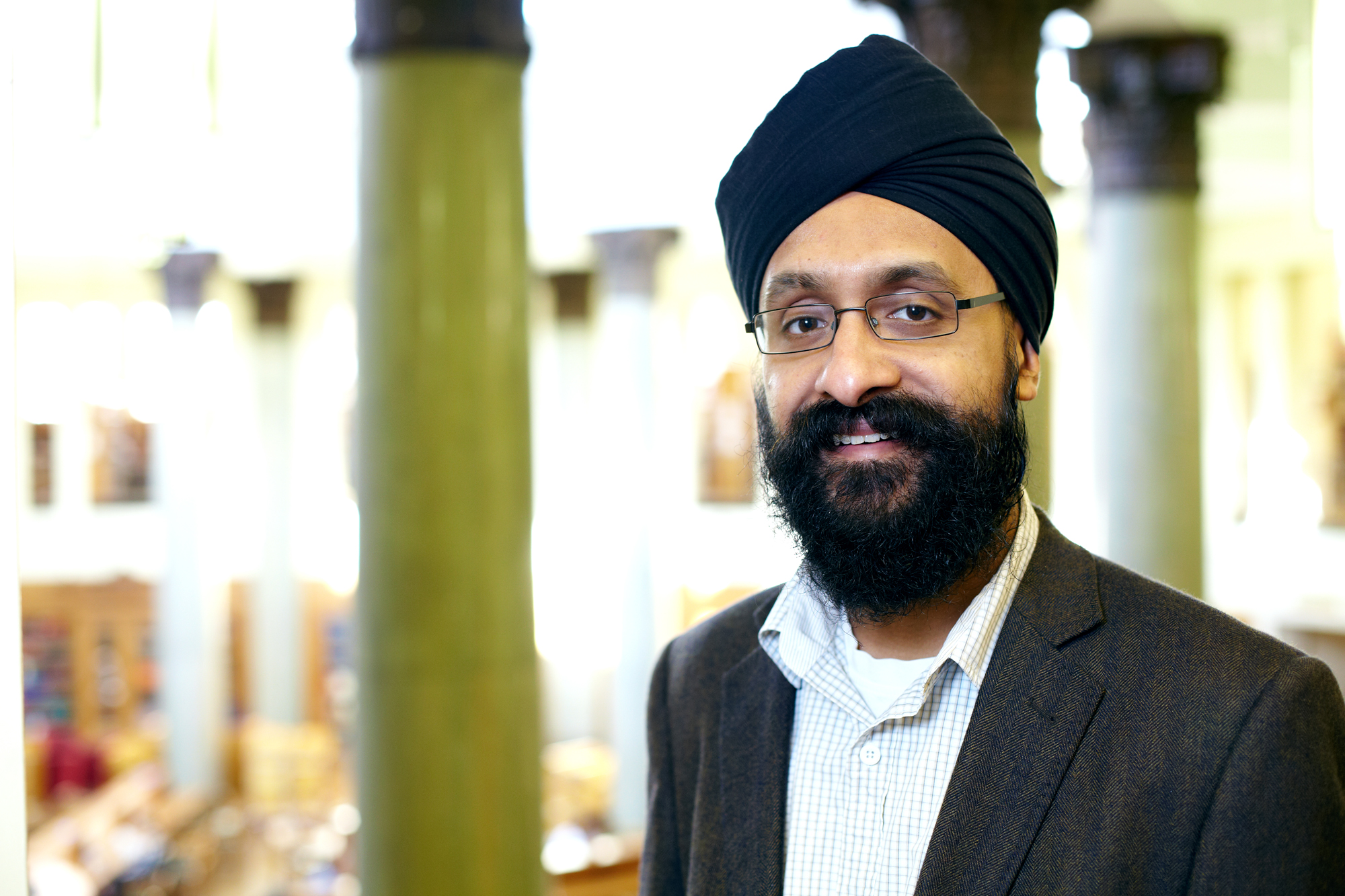Jasjit Singh (academic)
Dr Jasjit Singh (born 27 May 1972) is a British academic based at the University of Leeds. Dr Singh completed his PhD in 2012, examining how young Sikhs in Britain learn about Sikhi. His PhD, which was recognised for research excellence, was funded as part of the AHRC/ESRC Religion and Society programme [[1] in conjunction with the British Educational and Cultural Association of Sikhs (BECAS), an organisation formed to oversee the educational interests of Sikh children and young people.
Dr Singh’s PhD thesis was formally recognised by the University of Leeds for its Research Excellence. His research examined how young Sikh adults learn about Sikhi through traditional arenas of religious transmission such as the family and gurdwaras and newer arenas of religious transmission often organised by young people themselves including camps, University faith societies and the Internet. Much of his thesis has been published in academic journals and as book chapters including:
- ‘Houses of the Guru? Young Sikh engagement with Gurdwaras’, Journal of Punjab Studies, 21(1)[2]
- ‘The Guru's Way: Exploring diversity among British Khalsa Sikhs’, Religion Compass, 8(7)[3]
- ‘Sikh-ing Online: The role of the Internet in the religious lives of young British Sikhs’, Contemporary South Asia, 22(1)[4]
- ‘Keeping the Faith: Reflections on religious nurture among young British Sikhs’, Journal of Beliefs and Values, Volume 33 (3)[5]
- ‘Head First: A Study of the perspectives of young British Sikhs on Hair and the Turban’, Journal of Contemporary Religion, Volume 25 (2)[6]
Since completing his PhD in 2012 Dr Singh has carried out several further research projects including an examination of the representations of Sikh activism in media and policy. The publication of his open-access research report ‘The idea, context, framing and realities of Sikh radicalisation in Britain’[7] in November 2017 raised Dr Singh’s profile significantly among academics, national and international media, policymakers and in the Sikh diaspora.
Dr Singh has built a strong media profile by regularly appearing on mainstream national media as an academic commentator on Sikh affairs (e.g. Beyond Belief, Sunday programme, BBC Radio 4, BBC Asian Network's Big Debate) and on international Sikh media (Sikh Channel, Akaal Channel, KTV). Dr Singh also regularly engages with policymakers and statutory organisations and has also developed innovative methods of engaging with Sikhs in Britain through open-access workshops. He has been invited to speak about engagement with minority ethnic communities and organisations and has presented workshops on "Public engagement and research on religion".
In addition to major academic, media, policy and community-based outputs, Dr Singh has also published opinion pieces in ‘The Conversation’ including on the Canadian media furore around ‘Sikh extremism’[8] following the visit of the Canadian Prime Minister to India. Dr Singh’s expertise has also been called on by statutory bodies in relation to asylum cases relating to Afghan Sikhs[9].
At the University of Leeds, Dr Singh teaches modules on ‘Religion and Media’, ‘The Sikh tradition’, ‘Religion in Modern Britain’ and an ‘Introduction to the Study of Religion’ for which he receives excellent student feedback including “What a brilliant module! I have enjoyed every second of ‘The Sikh Tradition’ and I am so glad I chose it. Jas is a brilliant lecturer and seminar leader, provoking interesting debates and conversations in the group. We have had amazing opportunities through this module such as a Sikh music concert and getting to visit three Gurdwaras.”
Dr Singh is regarded as an innovator in engagement-related work, evidenced by an invitation to contribute to the University of Leeds Vice Chancellor’s ‘World Changers’ essay collection[10] for which he wrote ‘Not ‘hard to reach’ but ‘hardly reached’: Empowering communities by engaging them in research[11]. In 2021, he was elected co-chair of the Sikh Studies Unit at the American Academy of Religion[12].
References
- ^ http://www.religionandsociety.org.uk/
- ^ https://punjab.global.ucsb.edu/sites/secure.lsit.ucsb.edu.gisp.d7_sp/files/sitefiles/journals/volume21/no1/Singh.pdf
- ^ https://compass.onlinelibrary.wiley.com/doi/abs/10.1111/rec3.12111
- ^ https://www.tandfonline.com/doi/abs/10.1080/09584935.2013.870974
- ^ https://www.tandfonline.com/doi/abs/10.1080/13617672.2012.732817
- ^ https://www.tandfonline.com/doi/abs/10.1080/13537901003750894
- ^ https://crestresearch.ac.uk/resources/sikh-radicalisation-full-report/
- ^ https://theconversation.com/is-sikh-extremism-really-active-in-canada-93566
- ^ https://barficulture.tv/world/282
- ^ https://www.leeds.ac.uk/main-index/news/article/4973/world-changers-essays-with-impact-by-early-career-researchers
- ^ https://spotlight.leeds.ac.uk/world-changers/empowering-communities/
- ^ https://papers.aarweb.org/pu/sikh-studies-unit

